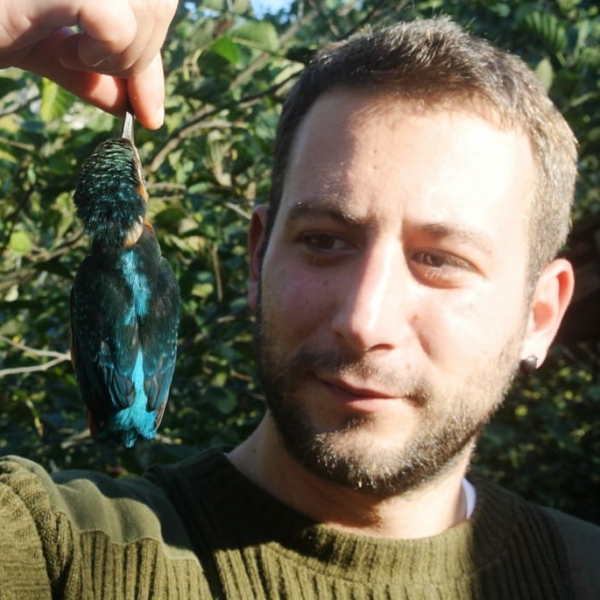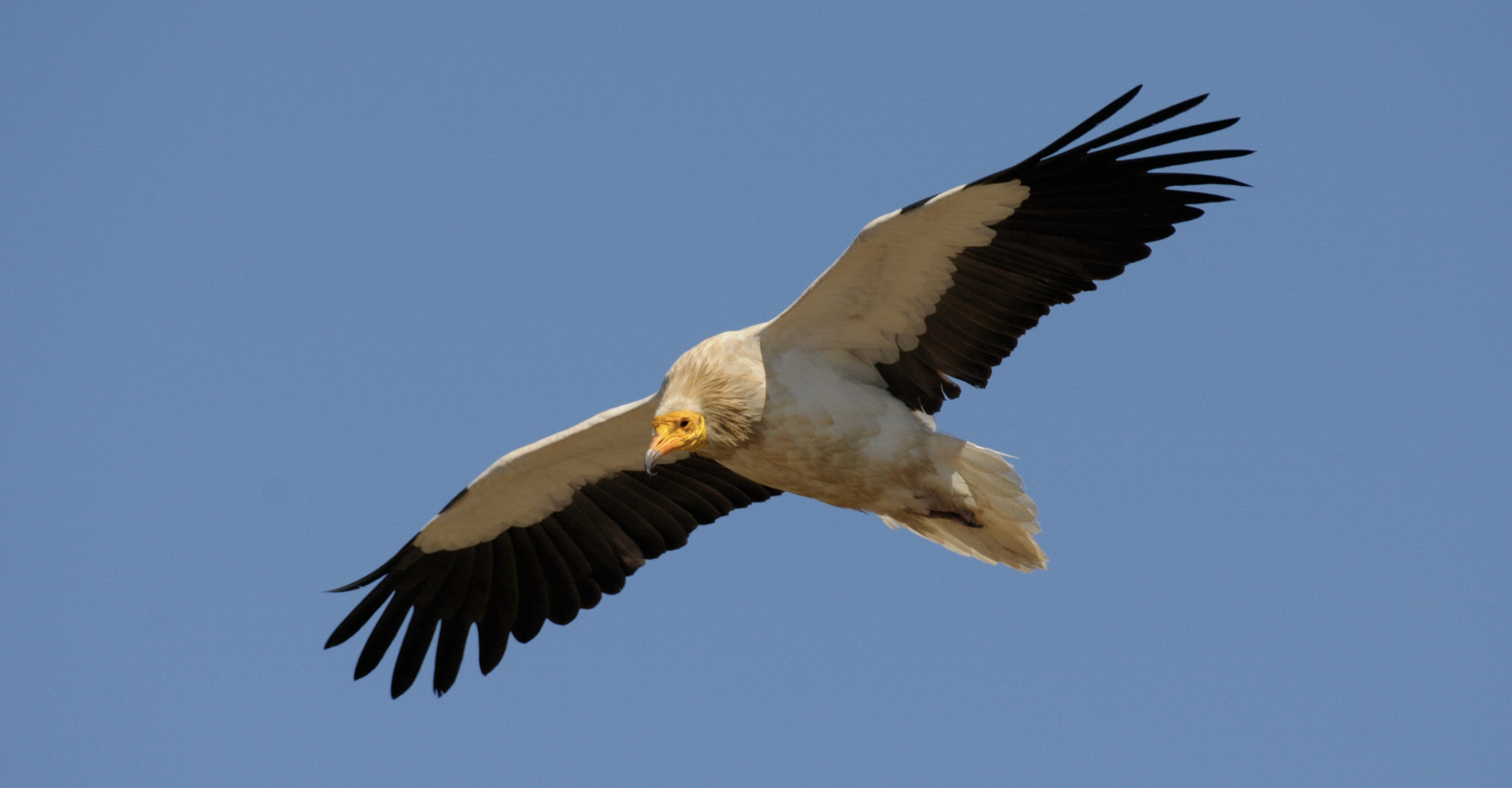The LIFE RUPIS teams continue to monitor the breeding Egyptian vultures in the Douro canyon – one of the densest populations in the Iberian Peninsula, and Portugal’s remaining stronghold for the species.
The young born this year have now almost all fledged, and are flying around – like the one in the photo. Soon they will start their first migration to Africa.
Last year teams from the ICNF, the Portuguese nature conservation agency, and from the Arribes del Duero Natural Park Portuguese statutory conservation agency, did an exhaustive breeding census of the species in the transboundary Douro canyon, and counted 135 pairs of Egyptian vultures. Breeding productivity – measured in a subsample of these pairs (n=69), was 0.72, while the fledgling rate was 1.06 young for each successful breeding pair. Breeding success was about 68%.
Last year´s survey established what is the reference situation at the start of the project LIFE RUPIS, which aims to strength the populations of Egyptian Vulture in Douro International valley, through improved breeding success and reduction of mortality. This year the ICNF has again been monitoring breeding productivity in a subset of the pairs – their results will be published soon.
The Egyptian vulture is Europe’s most threatened vulture species – classified as “Endangered” at global level. While the three others European vulture species are registering positive trends across Europe, Egyptian vultures continue to decline in most regions in the continent (and elsewhere).
The LIFE RUPIS project is implemented by the VCF and partners, including SPEA (BirdLife in Portugal), ATN and Palombar (regional conservation organisations in NE Portugal), the Junta de Castilla y Leon & the Fundación Patrimonio Natural de Castilla Y León, the Portuguese electricity distributor EDP-D, the Portuguese statutory conservation agency ICNF and the Portuguese environmental police force (GNR). The project – funded by the EU, with co-funding from the MAVA Foundation, is tackling the most important threats to Egyptian vultures, namely food shortages, degradation of the habitat, electrocution risk and the illegal use of poison.
Photos: ICNF





